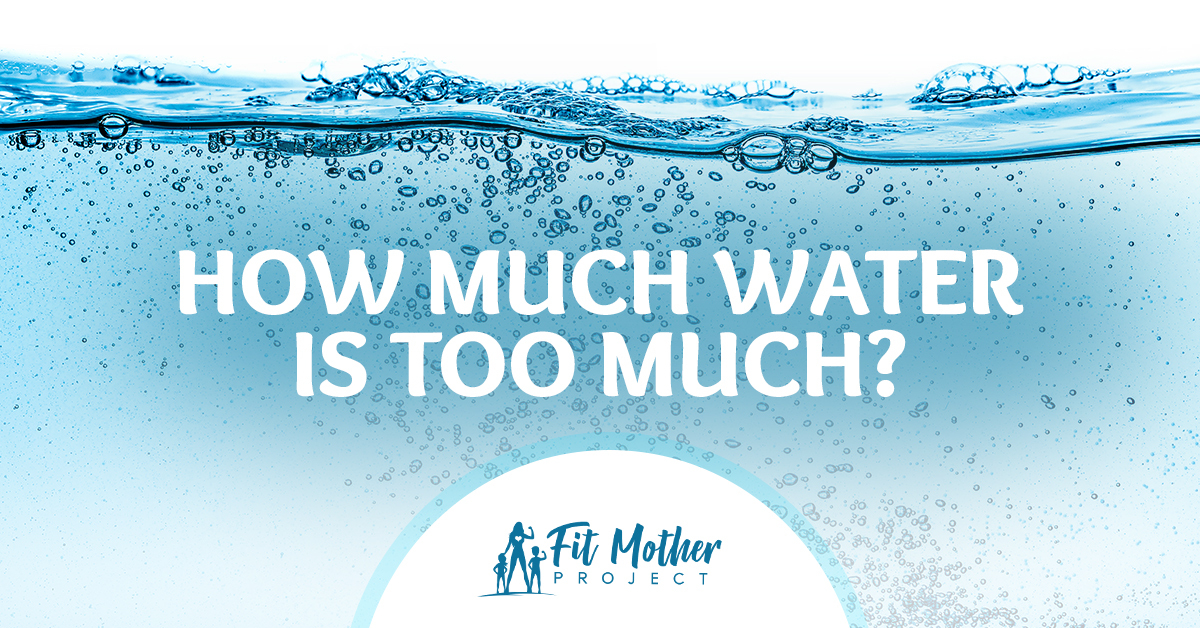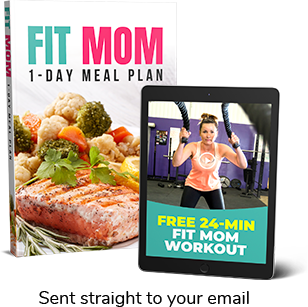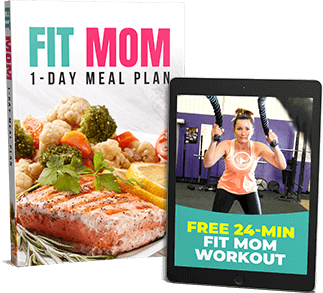Knowing how to balance your water intake and get enough fluids, without going overboard, is the key to maintaining optimal health and wellness in women.
You know that you need to drink water every day to stay healthy.
But how much water is too much and what can you do to prevent water overload and medical problems associated with it?
Knowing more about a few simple guidelines can help you make the right choices when determining your daily water intake.
What is Water Toxicity?
Water toxicity, or water poisoning, can occur if you drink too much water.
While rare, this condition can be dangerous if you don't consume enough electrolytes, especially sodium, to balance out a high water intake.
While drinking water is essential to avoid dehydration and negative health effects associated with it, overload might be more dangerous than you think.
How Much Water is Too Much?
Everyone is different, as the amount of water you can lose through sweating and other body functions varies from person to person.
Research shows that consuming 2 quarts (8 cups) of water per hour appears to be dangerous but it depends on your size, the amount of water your kidneys can remove from your body, and how efficient that process is.
The bottom line is to make sure you consume sodium or other electrolytes if you consume a large amount of water in a short time period, and keep an eye out for signs of water toxicity in addition to dehydration.
What Are the Symptoms of Water Toxicity?
If you've been drinking a lot of water in a short time frame, be on the lookout for the following symptoms of water toxicity.
If you experience them, you're probably drinking too much water.
- Nausea
- Vomiting
- Headaches
- Muscle cramping
- Muscle weakness
- Double vision
- Increases in blood pressure
- Tiredness
- Confusion
- Problems breathing
- Poor sensory functioning
In severe cases of water overload, you might also experience brain damage, seizures, or even coma.
Drinking too much water without enough sodium can increase pressure inside your skull, which is a risk factor for many of the signs and symptoms above.
While rare, water toxicity can even be fatal in some instances.
If you experience severe symptoms of water toxicity, such as confusion, vision problems, breathing difficulty, seizures, or vomiting, consume an electrolyte drink or eat a salty snack, and seek medical attention right away.
The sooner you balance out fluids with electrolytes, the better your chance of avoiding serious medical problems.
How Much Water Should I Drink?
The amount of water you should drink daily depends on your size, activity level, body composition, and the amount of fluids your body loses daily through sweating.
As a rule, women need just over 11 cups of fluids daily to maintain optimal body functioning and avoid unwelcome side effects associated with dehydration.
You might need more or less than this, as every woman is different.
To ensure you're ingesting enough fluids on a daily basis, make sure your urine is light yellow or clear in color, not dark yellow or brownish, which can indicate dehydration.
According to the Cleveland Clinic, it's normal to urinate about six to eight times within a 24-hour period.
This is just a guideline, but if you're peeing a lot less or a lot more than this you might be getting too little or too much fluids.
Additionally, weigh yourself before and after working out. If you've lost weight during exercise, you're likely dehydrated.
The next time you complete a strenuous or long-lasting sweat session, keep track of your fluid intake.
Consider the following hydration guidelines:
- 2 hours prior to exercise: drink about 17-20 ounces of water (2-2.5 cups)
- Every 10-20 minutes during exercise: drink about 7-10 ounces of water (about 1 cup)
- After exercise: drink about 16-24 ounces of water for each pound of body weight lost due to sweating (about 2-3 cups)
Following these general guidelines can help you avoid dehydration and unpleasant symptoms associated with it.
JOIN OUR fit
mother
PROGRAM (FM30X)
Fit Mother Project is the first sustainable health & weight loss program designed exclusively for busy mothers just like you...
LEARN MORE ABOUT FM30X »JOIN OUR FIT MOTHER 30X PROGRAM
FM30X is the first sustainable weight loss program designed exclusively for *busy* mothers like you...
Learn More >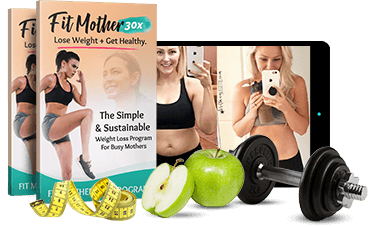
What Are the Signs of Dehydration?
If you feel thirsty, you're probably already dehydrated.
Be on the lookout for some of the following signs you're drinking too little water:
- Being thirsty
- Clammy skin
- Chills
- Headache
- Dizziness
- Nausea
- An elevated heart rate
- Dry mouth
- Shortness of breath
- Muscle cramping
- Fatigue
Severe dehydration is a serious medical problem and can increase your risk of heat exhaustion or heat stroke.
You might also experience muscle breakdown as a result of dehydration.
In the case of severe dehydration, you may require medical attention to reduce your risk of serious problems.
Dehydration can be just as dangerous as drinking too much water during workouts.
Always keep water with you when spending time outdoors in the heat, especially during workouts, and take an electrolyte drink or snack too during endurance workouts lasting more than 60 minutes.
GET YOUR FREE
“FIT MOM” JUMPSTART
(MEAL PLAN + WORKOUT)
Let us show you how you can start losing weight this week! We'll email you our free meal plan & workout + email coaching.
YES! GET MY FREE PLANHow Can I Avoid Water Toxicity?
Knowing how much water is too much isn't the only helpful guideline you can use to avoid water toxicity.
Balancing out a high water intake with electrolytes can reduce your risk of water overload and symptoms associated with it.
For example, if you exercise continuously for more than 60 minutes, consume a sports drink, sports gel, fruit, juice, or pretzels in addition to water to get electrolytes into your body and balance out a high water intake.
Listen to your body.
If you feel energized, aren't thirsty, don't experience symptoms of dehydration or water toxicity, and drink water about every 10-20 minutes during exercise, you're likely getting the right amount of fluids.
Make sure to consume electrolytes after 60 minutes of physical activity, especially during the heat of summer.
JOIN OUR fit
mother
PROGRAM (FM30X)
Fit Mother Project is the first sustainable health & weight loss program designed exclusively for busy mothers just like you...
LEARN MORE ABOUT FM30X »JOIN OUR FIT MOTHER 30X PROGRAM
FM30X is the first sustainable weight loss program designed exclusively for *busy* mothers like you...
Learn More >
Which Electrolyte Sources Should I Choose?
If you're exercising more than an hour and need a healthy electrolyte drink to balance out a high water intake, optimize performance, and avoid water toxicity and unpleasant symptoms associated with it, consider the following options:
- Coconut water
- Water mixed with fruit or 100% fruit juice
- Juice
- Watermelon water
- Sports drinks low in added sugar
- Electrolyte-infused water
- Fruit smoothies
- Fruit
- Sports gels
After your workout, choose a nutritious protein shake, protein-fortified (reduced-sugar) chocolate milk, or another healthy post-workout snack to replenish electrolytes, carbohydrates, and protein and help your body recover after exercise.
Eat a well-balanced meal within a few hours by filling your plate:
- Half-full with non-starchy vegetables (greens, cucumbers, bell peppers, tomatoes, broccoli, cauliflower, celery, asparagus, zucchini, etc.)
- One-fourth full with protein foods like grilled chicken, fish, eggs, or tofu
- One-fourth full of fiber-rich starches (quinoa, brown rice, sweet potatoes, corn, peas, dried beans, etc.)
Don't forget to add milk, Greek yogurt, low-fat cottage cheese, almond milk, or other calcium-rich foods to your meal plan plus heart-healthy fats like olive oil, avocados, nuts, seeds, or nut butter.
Should You Worry About Drinking Too Much Water?
In most cases, you don't have to worry about drinking too much water.
In fact, many Americans don't drink as much water as they should and are chronically dehydrated.
Getting enough fluids daily can keep energy levels high, optimize athletic performance, and lower your risk of unwanted weight gain, overweight, and obesity.
However, if you're headed to the bathroom frequently, you experience symptoms of water toxicity, or you're staying active outdoors in the heat or for long time periods, add electrolytes to your hydration plan.
Use the following guidelines to gauge the effectiveness of your fluid intake:
- Is my urine clear or light yellow?
- Am I using the bathroom about 6-8 times daily?
- Do I feel energized?
- Am I free from unusual or unpleasant symptoms?
If you answered yes to the questions above, you're likely staying hydrated without the risk of fluid overload.
How Should I Adjust My Fluid Intake for Weight Loss?
If weight loss is your goal, chances are increasing your fluid intake can optimize fat-burning results.
Studies show that drinking 2 cups of water 30 minutes before meals is an effective weight loss strategy.
Drink about 2 cups of water when you first wake up and 2 cups of water before each meal.
Doing so can help you feel full, reduce your risk of overeating at mealtime, and keep your metabolism going strong.
In addition, eat healthy foods and join an organized nutrition plan to optimize long-term healthy weight management.
Focus on eating non-starchy and starchy vegetables, nutritious protein foods, fruits, heart-healthy fats, legumes, whole grains, nuts, seeds, avocados, olive oil, and other plant-based oils to achieve or maintain your goal weight.
Get plenty of sleep each night and keep stress levels low.
Consider joining the Fit Mother Project!
Upon joining you'll receive fat-burning workouts, custom meal plans, health coaching from medical experts, fit mom community support, nutritious recipes, and much more.
Try the Fit Mother Project free meal plan and workout to get started today!
Erin Coleman is a registered and licensed dietitian with over 15 years of freelance writing experience. She graduated with her Bachelor of Science degree in nutritional science from the University of Wisconsin-Madison, and completed her dietetic internship at Viterbo University in La Crosse, Wisconsin. Prior to beginning her career in medical content writing, Erin worked as Health Educator for the University of Wisconsin-Madison Department of Internal Medicine. Her published work appears on hundreds of health and fitness websites, and she’s currently working on publishing her first book! Erin is a wife, and a Mom to two beautiful children.
Fit Mother Project is the answer you’ve been looking for. Inside the program, you’ll receive: Our Fit Mother 30X Program (FM30X) is the answer you’ve been looking for. Inside FM30X, you’ll receive:If you’re a busy mom who wants to finally lose weight,
get healthy, and actually keep the pounds off for good,
this is the simple program you’ll love sticking to…
If you’re a busy mom who wants to finally lose weight,
get healthy, and actually keep the pounds off for good,
this is the simple program you’ll love sticking to…
LEARN MORE ABOUT FM30X »
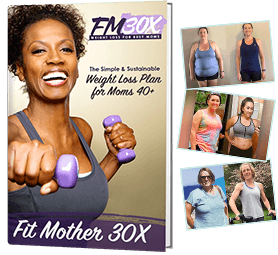
Learn More About FM30X

*Please know that weight loss results & health changes/improvements vary from individual to individual; you may not achieve similar results. Always consult with your doctor before making health decisions. This is not medical advice – simply very well-researched info on how much water is too much.

